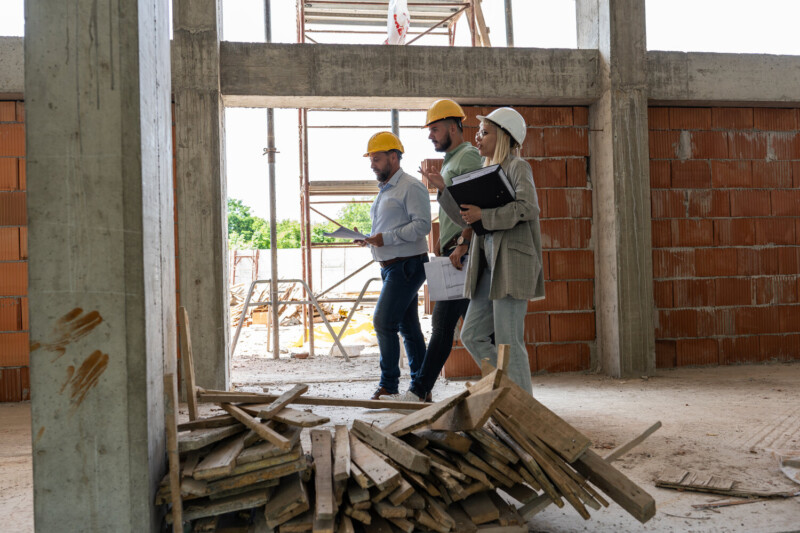Energy codes are an integral part of construction projects, establishing the minimum requirements for energy efficiency, environmental responsibility, and safety in both residential and commercial buildings.
As regulations can vary significantly from one location to another, understanding local and state energy code requirements is essential for homeowners and construction professionals alike to ensure seamless project execution and compliance.
In this ultimate guide, we’ll provide you with the tools and insights needed to navigate local and state energy code requirements effectively. Besides offering an overview of the various energy code standards, this guide will delve into their significance, why staying informed and up-to-date is crucial for your projects, and the common challenges faced during the compliance process.
By understanding and addressing key energy code requirements, you can confidently tackle your projects and contribute to a more sustainable future.
Understanding the Importance of Energy Codes
Energy codes are designed to promote energy efficiency, reduce energy consumption, and ensure the long-term sustainability of residential and commercial buildings. These codes specify the minimum energy-efficient requirements for new and renovated buildings, addressing aspects such as insulation, air sealing, heating and cooling systems, water heating, lighting, and more.
Following energy codes not only results in reduced energy costs and increased occupant comfort but also contributes to the reduction of greenhouse gas emissions. It is essential for homeowners and construction professionals to adapt to energy code requirements, ensuring compliance, and embracing environmentally responsible practices.
The Variability of Local and State Energy Codes
Energy codes can vary significantly across locations as states and local jurisdictions are responsible for adopting specific energy standards. Two of the most widely adopted energy codes in the United States are the International Energy Conservation Code (IECC) and the American Society of Heating, Refrigerating, and Air-Conditioning Engineers (ASHRAE) Standard 90.1.
However, localities may introduce amendments or require additional measures to cater to the region’s unique climate, energy needs, and policy goals. Due to these variations, it’s crucial for homeowners and construction professionals to stay informed and adhere to the specific energy code requirements of their respective regions.
Strategies for Navigating Local and State Energy Codes
- Research Your Jurisdiction’s Requirements: Begin by understanding the energy code requirements specific to your state and local jurisdiction. Visit official government websites and review regulations to identify the applicable energy code standards for residential and commercial projects. Use resources such as the U.S. Department of Energy’s (DOE) Building Energy Codes Program (BECP), which offers valuable insights and tools to help understand and apply energy code requirements.
- Stay Up-to-Date on Changes: Energy codes are continuously evolving with the development of new technologies and practices for improving energy efficiency. Subscribe to newsletters, join industry forums, attend workshops, and keep yourself informed about any updates or changes to local and state energy codes.
- Consult with Experts: Collaborate with architects, engineers, and energy code consultants who are knowledgeable about local and state energy code regulations. Their expertise can provide valuable guidance and help streamline your project, ensuring compliance with applicable codes.
- Incorporate Energy Code Requirements Early in the Design Process: Address energy code requirements early in the design stage of your project by integrating energy-efficient technologies and practices from the outset. This proactive approach minimizes the need for costly alterations and ensures a smoother progression towards compliance.
- Conduct Energy Code Compliance Reviews: Before commencing construction, perform a thorough review of your project plans to ensure alignment with local and state energy code requirements. Identify any discrepancies or areas of non-compliance and address them promptly, mitigating the risk of potential complications during the inspection process.
Addressing Challenges in Energy Code Compliance
Various challenges may arise when striving to meet energy code requirements, such as local variations in codes, cost considerations, and evolving technologies. To overcome these challenges:
- Engage with Local Building Officials: Build a working relationship with local building officials, seeking their guidance and expertise to clarify any gray areas in energy code language and regulations. They can provide invaluable assistance in understanding specific local requirements and expectations.
- Evaluate Cost-Benefit Analyses: Consider the long-term benefits of investing in energy-efficient technologies and practices. While the initial costs may seem higher, the energy savings and reduced environmental impact often outweigh these costs, providing a more sustainable solution that aligns with energy code requirements.
- Embrace Innovation and New Technologies: Stay informed about current advances in energy-efficient technologies, identifying opportunities to incorporate new systems and techniques into your projects. This approach not only supports energy code compliance but also positions your project as an industry leader in sustainability and efficiency.
By understanding the importance of energy codes, becoming familiar with local and state requirements, and adopting proactive strategies to ensure compliance, homeowners and construction professionals can successfully navigate the complexities of energy code regulations. Navigating these regulations supports the construction of energy-efficient buildings, reducing energy consumption, benefiting occupants, and contributing to a more sustainable future.
Achieving Energy Code Compliance with Confidence
Understanding and complying with local and state energy codes are crucial aspects of any construction project. By embracing the guidelines outlined in this ultimate guide, you can successfully navigate the complexities of energy code regulations and contribute to a more sustainable, energy-efficient future.
Struggling to navigate local and state energy codes? Let Energy Code Inspections be your ultimate guide! Our experienced team can provide you with the knowledge and resources necessary to ensure your building’s energy code compliance. Schedule a consultation with us today and take the first step towards a more energy-efficient building. Trust Energy Code Inspections to provide expert guidance on navigating energy codes, making your building more comfortable and eco-friendly while meeting all necessary compliance requirements.

